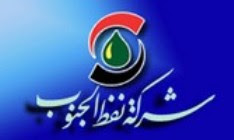http://online.wsj.com/article/SB10001424052748704717004575268201268394066.html?mod=googlenews_wsj
By HASSAN HAFIDH
AMMAN—The former head of Iraq's largest state-owned oil company and advisor to the country's oil ministry criticized long-term deals that Baghdad signed with international oil majors to develop some of its biggest fields, saying the country instead should have agreed to short-term technical deals.
"There is no clear national plan on how to develop these huge oil fields," Jabbar Al Luaiby told Dow Jones Newswires in an interview.
BP PLC, Royal Dutch Shell PLC and Cnooc Ltd., Exxon Mobil Corp. and Italy's Eni SpA have bagged deals with Iraq to develop fields in the war-torn country, which holds the world's third-largest proven oil reserves after Saudi Arabia and Iran, according to BP.
Mr. Al Luaiby's remarks could increase pressure on Baghdad to revise contracts awarded to foreign companies. Ayad Allawi's Iraqiya bloc, which won the most seats in the recent parliamentary election, said it would like to review oil contracts signed with the majors.
"They're huge deals that need the infrastructure, the potential and management which Iraq is currently lacking because of years of war, economic sanctions and destruction," said Mr. Al Luaiby, who recently left his position as an advisor to Iraq's oil minister.
He added that international oil companies can still play a part in tapping Iraq's vast resources once better infrastructure and oversight is in place. Foreign investment could help reverse the impact of two decades of war, sanctions and neglect on Iraq's oil industry.
A spokesman for Iraqi Oil Minister Hussain Al Shahristani declined to comment on Mr. Al Luaiby's remarks.
Two auctions held last year led to the award of 11 major oil deals to international oil companies. Baghdad hopes the contracts will boost capacity to close to the 12 million barrels a day that Saudi Arabia pumps, from the country's current 2.5 million barrels a day. The 20-year deals give companies costs for development and remuneration for each barrel pumped.
Mr. Al Luaiby argues that Baghdad instead should have offered short-term technical deals originally negotiated with oil companies but canceled in 2008.
The veteran Iraqi oil technocrat, who was head of South Oil Co., or SOC, between 2003 and 2008, also said the current decline in Iraq's crude oil production from southern Iraq was "expected" because of failure to drill new wells and repair hundreds of existing spigots.
Iraq's exports in April of Basra Light crude dropped to 1.42 million barrels a day, a fall of 100,000 barrels from the previous month, according to officials. Output is expected to remain lower throughout the summer as the hot climate makes production harder.
"I told them several times that production would decline if we don't move quickly to check it," Mr. Al Luaiby said.
A popular tribal figure in Basra, Mr. Al Luaiby played a lead role in rebuilding the country's southern oil fields after the 2003 invasion. Headquartered in Basra, SOC is Iraq's largest state-run oil company accounting for 70% of total output.
Write to Hassan Hafidh at hassan.hafidh@wsj.com

No comments:
Post a Comment